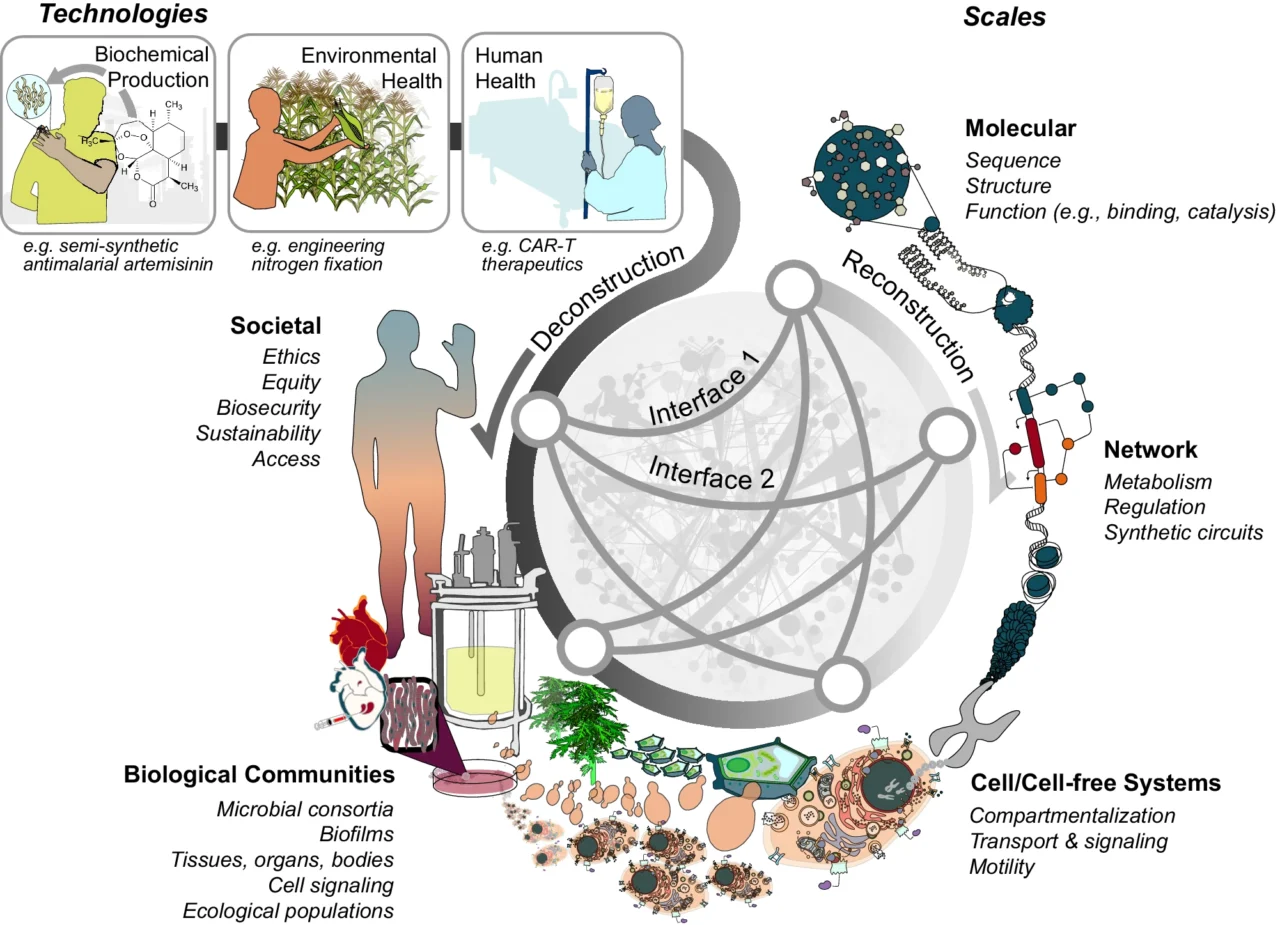Bioeconomy Policy
A Holistic Approach to Teaching Synthetic Biology
Northwestern introduces a new teaching framework for synthetic biology, integrating multiple disciplines from the molecular to societal scale
Jul 1, 2024
[Lucks Lab/Northwestern University]
The synthetic biology field, where biology is manipulated through scientific techniques, has long been a melting pot of various disciplines. While beneficial for innovation, this diversity has posed challenges in creating a consistent curriculum for students. Each field involved, from chemical engineering to ethics, brings its unique educational approach, leading to inconsistencies in what scientists learn.

Northwestern University researchers have proposed a new teaching method for synthetic biology. This innovative approach starts at the molecular level and expands to the societal scale, aiming to teach core principles and provide a comprehensive understanding of developing sustainable synthetic biology technologies. The framework, which integrates elements from multiple disciplines, is designed to be accessible to individuals from diverse backgrounds.
A detailed paper on this new educational framework was published recently in Nature Communications.
“Early versions of synthetic biology courses lacked a conceptual foundation,” explained Julius Lucks, a leading synthetic biology expert and the paper’s lead author. “From an educational perspective, you saw a kind of hodgepodge depending on which department you were in. We set ourselves the challenge of trying to figure out how can you merge all those disciplines, somehow develop a common framework, and create a common language?”
Lucks is a professor of chemical and biological engineering at Northwestern’s McCormick School of Engineering and co-director of the Center for Synthetic Biology (CSB).
The concept of synthetic biology, which involves reusing, repurposing, and reconfiguring biological systems to address societal challenges, became feasible with the advent of genetic engineering in the 1970s. The popularization of CRISPR around 1990 further boosted synthetic biology, but the lack of a structured curriculum led to an identity crisis within the field.
“One of the biggest problems we saw in our students and labs is that they tend to be focused on a very specific problem,” said Ashty Karim, a Northwestern research assistant professor of chemical and biological engineering and the paper’s first author.
“For example, if you're looking at how CRISPR works, you might be studying the localized protein machinery that makes edits to the DNA. But if you're going to create a technology based on CRISPR, there are many other important facets than molecular scale workings. How does it work in the context of a cell or a population of cells within someone's body across different tissues? How does that interact with current healthcare systems? These are discussions that we need to be having and might influence the science that we do.”
Karim, the director of research at CSB and a core faculty member, emphasized the importance of considering these broader impacts.
The idea of breaking down biology into scales emerged from discussions about how introductory biology courses often move from DNA to tissue to organism. According to the paper, synthetic biology can be segmented into five components: molecular, circuit/network, cellular, biological communities, and societal.
A crucial element of the proposed framework is incorporating robust ethical considerations at each scale.
By piloting the curriculum with undergraduate and graduate students at Northwestern, the authors discovered that core principles, like thermodynamics and kinetics, naturally aligned with different scales. For instance, is it necessary to understand a principle all the time, or can it be “ignored” at certain scales?
The curriculum is also designed to be supported by case studies that help learners analyze how engineering choices made at one scale affect biological functions at another. These studies also help formulate potential solutions to global challenges and understand the impact of synthetic biology on societal goals and ethical issues. The case studies can be tailored to the specific institution or instructor implementing the curriculum.
According to Lucks and Karim, the response to presenting this approach in classes has been overwhelmingly positive, with students quickly grasping the concept. The scales concept has been so effective that the Northwestern Center for Synthetic Biology uses it to organize its cutting-edge collaborative research.
The researchers hope that their curriculum can be widely adopted and that they have provided resources and ideas to help others adapt the approach to their needs and interests.


















